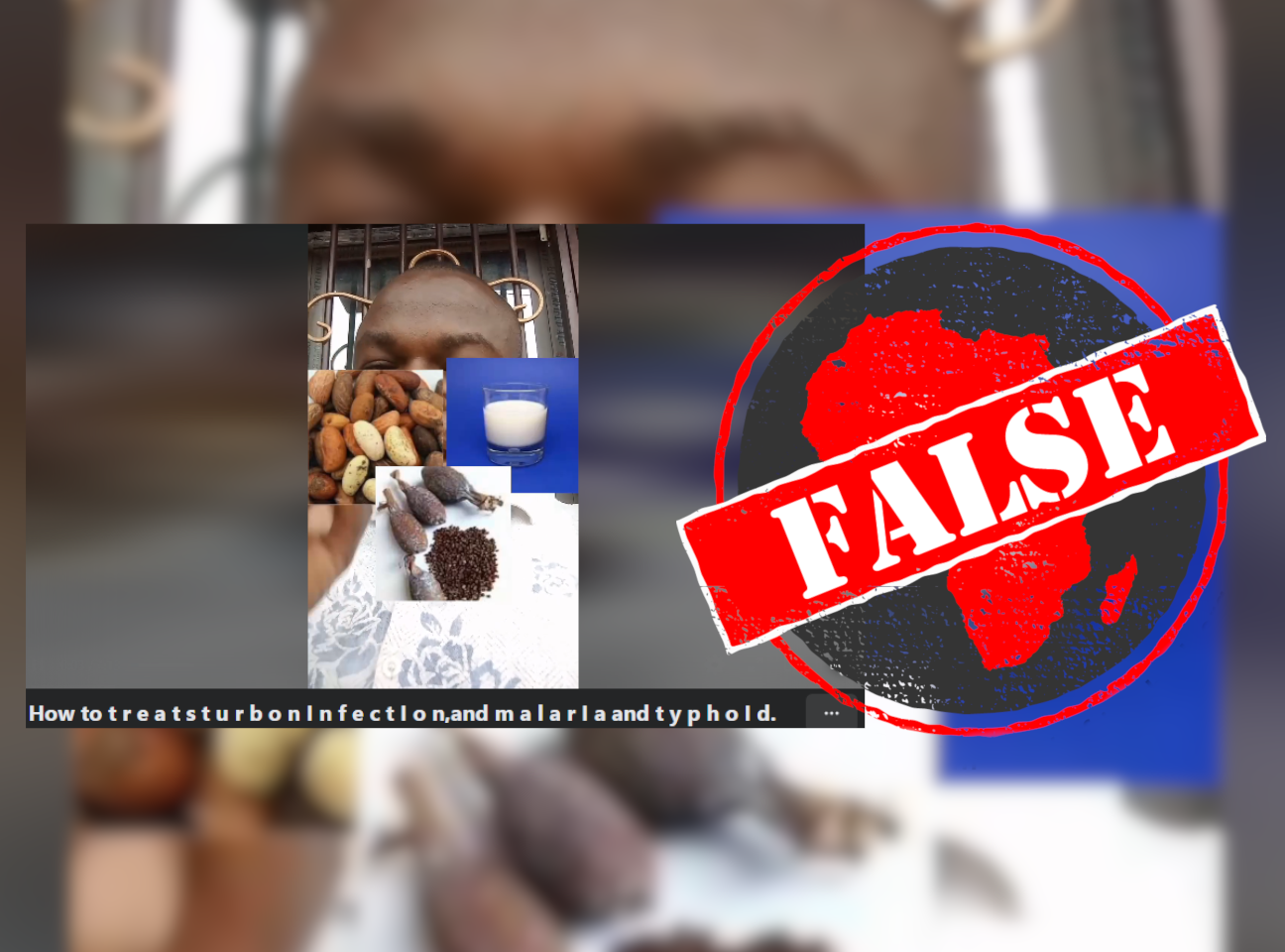IN SHORT: A Facebook post claims that a combination of alligator pepper and bitter kola can treat infections, malaria and typhoid. But there is no medical evidence to support this.
A video posted on the Facebook page Easternpride, which has 3,000 followers, claims that a combination of alligator pepper and bitter kola can treat “stubborn infections”, malaria and typhoid.
The man in the video instructs users on how to treat infections by grinding together alligator pepper and bitter kola, mixing this with milk, and taking the mixture three times a day for seven days.
To treat malaria and typhoid, he gives different instructions, telling users to soak the pepper in lemon juice for three days and take the concoction for five days.
But are these claims backed by any evidence? We checked.

Understanding the medical conditions
Malaria is a serious disease characterised by periods of fever. It is transmitted to humans by an infected Anopheles mosquito. Although the disease is preventable and curable, malaria is life-threatening.
It is mostly found in tropical countries. In 2022, four African countries accounted for just over half of all malaria deaths worldwide, with Nigeria leading the way, ahead of the Democratic Republic of the Congo, Uganda and Mozambique.
Typhoid or typhoid fever is another life-threatening infection, caused by the bacterium called Salmonella typhi. It is usually spread through contaminated food or water. Its symptoms include fever and diarrhoea.
In 2017, the World Health Organization introduced two typhoid vaccines into childhood immunisation programmes in countries where the disease is endemic. Since 2019, it's estimated that there have been nine million cases of typhoid worldwide and around 110,000 deaths each year.
What is alligator pepper and bitter kola?
Alligator pepper, or Aframomum melegueta, is a member of the ginger family. It is a dark brown seed pod that is native to West Africa. People in tropical parts of the world, such as Nigeria and Ghana, use its seeds as a spice.
Unsubstantiated claims about the health benefits of alligator pepper are also widespread. But one study found that alligator pepper may not be safe for pregnant or breastfeeding mothers and should not be used instead of medication.
Bitter kola, also known as bitter cola or Garcinia kola, is a flowering plant found in central and western Africa.
A 2022 review of the scientific research into the pharmacological potential of bitter kola found that the seeds were “very efficient as antioxidant, antimicrobial, antidiabetic, antihypertension, antianalgesic, and anti-inflammatory”.
The studies reviewed included one from 2018 that found eating bitter kola could benefit cough, bacterial or viral infection and had anticancer properties. A 2014 study found that a biflavonoid extracted from bitter kola seeds had both antioxidant properties and was an antimalarial at a high dose, but this study was conducted on mice, not humans.
We found no reliable studies on whether alligator pepper could be used in the treatment of typhoid fever.
Medical experts refute claim
Africa Check contacted Dr Johnson Udodi, a senior registrar at the National Hospital Abuja, Nigeria, to check if there was any truth to the claim made in the Facebook video.
He said: “There is currently no orthodox treatment of malaria or typhoid that is based on bitter kola and alligator pepper. There may be anecdotal claims, which may not necessarily be backed by scientific proof, that suggest usefulness of such remedy in some forms of throat problems.”
Dr Adefolarin Opawoye, an infectious disease consultant at the Lagos University Teaching Hospital, told Africa Check: “There’s zero scientific evidence of this claim.”
Both doctors urged people to see a medical doctor and not resort to unproven herbal concoctions.
Republish our content for free
For publishers: what to do if your post is rated false
A fact-checker has rated your Facebook or Instagram post as “false”, “altered”, “partly false” or “missing context”. This could have serious consequences. What do you do?
Click on our guide for the steps you should follow.
Publishers guideAfrica Check teams up with Facebook
Africa Check is a partner in Meta's third-party fact-checking programme to help stop the spread of false information on social media.
The content we rate as “false” will be downgraded on Facebook and Instagram. This means fewer people will see it.
You can also help identify false information on Facebook. This guide explains how.


Add new comment